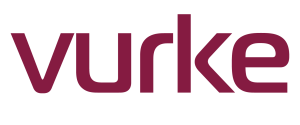table of contents
Strategic Cost Reduction: Optimizing Payroll in the UAE
Reducing payroll costs is a critical goal for businesses in the UAE, given the unique regulatory environment, economic fluctuations, and sector-specific challenges. Payroll efficiency directly impacts a company’s profitability, making it vital for organizations to explore sustainable cost-reduction strategies. From compliance with UAE labor laws to leveraging technology and outsourcing, businesses have a variety of options to streamline payroll operations while maintaining high standards of employee satisfaction.
Key Takeaways
- Adherence to UAE labor laws and regulations is essential to avoid penalties and reduce payroll-related inefficiencies.
- Automation and outsourcing to payroll service providers can transform payroll management, reducing errors and costs.
- Flexible staffing models and optimizing workforce structures enable businesses to adapt to market conditions and save significantly.
Understanding the Impact of UAE Labor Laws on Payroll Costs
Compliance with UAE labor laws and regulations is non-negotiable for businesses operating within the region. Employers must adhere to policies on wages, working hours, end-of-service benefits, and residency requirements to avoid financial penalties.
For businesses in zones like the Dubai International Financial Centre (DIFC), additional legal frameworks often apply. These frameworks, though stringent, provide clear guidelines that can help streamline payroll processes when managed correctly.
Why Compliance Matters:
- Ensures legal protection for both employers and employees.
- Prevents fines and litigation that can arise from non-compliance.
- Builds a positive reputation, enhancing employee trust and retention.
Leveraging Automation and Outsourcing for Payroll Efficiency
Modern payroll systems are far more sophisticated than manual methods. Automation and outsourcing are particularly effective in the UAE due to the multi-layered complexities of global payroll management.
Automation in Payroll Management
Automation simplifies repetitive tasks such as salary calculations, deductions, and tax filings. Cloud-based solutions also provide real-time reporting and compliance tracking, enabling businesses to reduce errors and save time.
- Advantages:
- Reduces manual errors.
- Improves compliance with UAE labor laws.
- Increases transparency and accountability.
Outsourcing Payroll Services
Employing third-party payroll providers allows businesses to focus on core operations while benefiting from the expertise of specialized firms. Providers like Vurke’s global payroll offer tailored solutions that address the unique requirements of industries such as retail, healthcare, and IT.
- Advantages:
- Access to expert knowledge in UAE labor laws and global payroll management.
- Enhanced scalability for growing businesses.
- Cost savings through reduced administrative overhead.
Flexible Staffing Models and Workforce Optimization
The UAE is home to diverse industries, each with its own payroll challenges. Companies in the oil and gas sector, for instance, may have high labor costs due to specialized roles, while retail businesses face seasonal workforce demands.
Key Strategies for Workforce Optimization:
- Implementing Flexible Staffing Models: Use part-time, freelance, or contractual employees to adapt to fluctuating workloads.
- Conducting Regular Workforce Audits: Review roles and responsibilities to identify redundant positions or overlapping functions.
- Upskilling and Internal Mobility: Investing in employee training reduces turnover and allows for internal role adjustments, lowering hiring costs.
Sector-Specific Payroll Cost Reduction Tactics
1. Retail Industry
- Seasonal Staffing: Employ temporary workers during peak shopping periods.
- Incentive Alignment: Focus on commission-based incentives for sales staff rather than fixed salary increases.
2. Healthcare Industry
- Outsource Non-Core Functions: Partner with payroll service providers for healthcare administrative tasks to focus resources on patient care.
- Leverage Technology: Automate shift scheduling to minimize overtime costs.
3. Information Technology Sector
- Remote Work Models: Reduce office space expenses by enabling employees to work remotely.
- Automation Tools: Invest in payroll outsourcing to handle multi-jurisdictional complexities.
4. Oil and Gas Industry
- Contract-Based Staffing: Hire project-based specialists for short-term needs.
- Optimize Rotational Shifts: Reduce redundancy by refining shift patterns.
Outsourcing Payroll Services in the UAE
Outsourcing is a game-changer for businesses looking to reduce payroll costs without compromising compliance or efficiency. Third-party payroll providers, such as Vurke, offer comprehensive services that cover:
- Compliance with UAE labor laws.
- Accurate salary calculations and benefits management.
- Integration with existing HR systems for seamless operations.
Key Benefits:
- Avoids costly payroll errors.
- Enhance scalability for businesses with global payroll management needs.
- Improves financial forecasting with accurate payroll data.
Why Choose Vurke for Payroll Optimization?
Vurke offers cutting-edge solutions designed for businesses in the UAE. Their expertise in diverse industries ensures tailored approaches for specific needs, whether it’s streamlining payroll for retail businesses or ensuring compliance for operations within DIFC zones. With a focus on automation and innovation, Vurke enables organizations to achieve both cost efficiency and operational excellence.
Legal Considerations for Payroll Optimization in the UAE
Understanding the legal environment is paramount to reducing payroll costs. Businesses must:
- Stay updated on UAE labor law amendments.
- Comply with DIFC-specific regulations for companies operating within free zones.
- Ensure all employee contracts and payroll processes align with national and international standards.
Conclusion
Reducing payroll costs in the UAE requires a multi-faceted approach. By leveraging automation, outsourcing, and flexible workforce strategies, businesses can optimize operations without compromising compliance or employee satisfaction. Solutions like those offered by Vurke’s outsourcing payroll services are invaluable for businesses looking to navigate the complexities of UAE labor laws while achieving cost efficiencies.
FAQs
What are the key challenges of payroll management in the UAE?
Payroll management in the UAE involves navigating complex labor laws, compliance requirements, and multi-national workforce demands, all of which can be challenging without expert support.
How can businesses in free zones optimize payroll costs?
Businesses in free zones like DIFC can optimize payroll by adhering to their specific legal frameworks, employing automation, and outsourcing specialized payroll service providers.
How can outsourcing help in payroll management?
Outsourcing provides access to expertise, reduces administrative overheads, and ensures compliance, making payroll processes more efficient and cost-effective.
Which industries benefit most from payroll optimization in the UAE?
Industries like retail, healthcare, IT, and oil and gas benefit significantly from payroll optimization due to their unique staffing and operational challenges.
Why is compliance with UAE labor laws crucial for payroll management?
Compliance prevents financial penalties, legal disputes, and reputational damage, while ensuring fair and transparent employee practices.
What are the best ways to reduce payroll costs in the UAE?
Use automation, outsource payroll, adopt flexible staffing, and conduct workforce audits to streamline costs effectively.
Are there legal risks in cutting payroll expenses in UAE?
Yes, non-compliance with UAE labor laws or improper wage reductions can lead to fines and legal disputes.
How can outsourcing payroll help companies save money?
Outsourcing reduces administrative costs, ensures compliance, and eliminates the need for in-house payroll expertise.



